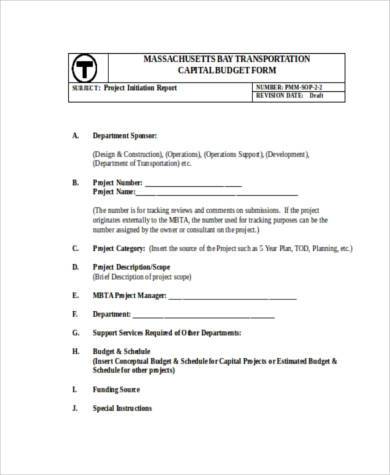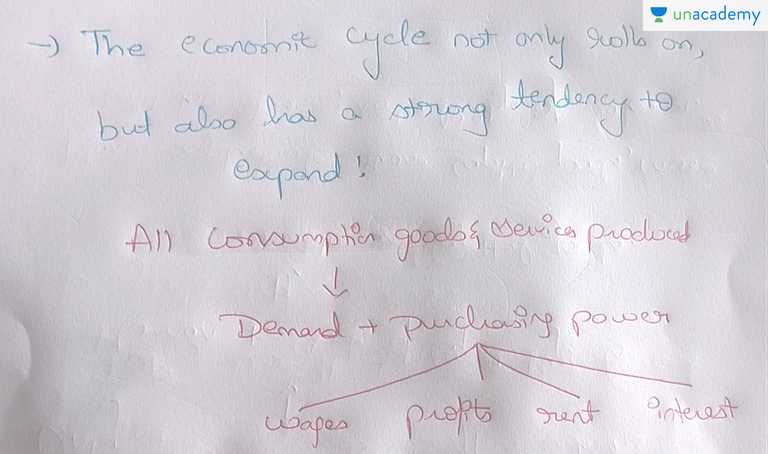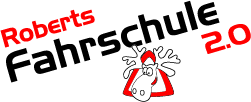
The bottom line is that the Internet has helped connect buyers and sellers worldwide and give them more options to get the best price possible. You can find nearly anything you need if you look hard enough online, so get comfortable, do your research, and get ready to have some fun. One way is to agree on a meeting point or set a time and place to trade certain goods. This is called setting the “spot” since it’s most commonly used for more significant transactions.
- Only when the contracts expire would physical delivery of the commodity or other asset take place, and often traders will roll over or close out their contracts in order to avoid making or taking delivery altogether.
- In a case of the retail market, the goods are sold in small quantity directly to the consumers.
- In the case of foreign exchange, cash market transactions will occur between two parties at a rate that is “spot” or immediately available.
- Futures markets are financial markets where people buy and sell goods for future delivery at a specific price agreed upon today.
It is the market where in the farm products are sold by the primary producers to the wholesalers or their agents. Foreign Exchange Market Transactions occur when one currency is converted into another currency. Now that we have an idea of what the spot market is let’s look at how it can be used. The first thing to remember is that this depends on finding someone that wants to buy or sell certain goods with you. You import goods from Europe and need to pay a supplier EUR 1,000,000 in 6 months’ time.
It’s the most efficient way to execute trades and is usually combined with margin trading. The spot price is the current quote for immediate purchase, payment, and delivery of a particular commodity. This means that it is incredibly important since prices in derivatives markets such as for futures and options will be inevitably based on these values. Commodity producers and consumers will engage in the spot market and then hedge in the derivatives market. Additionally, if the market moves against you, there is a Knockout Rate, at which point the contact will immediately terminate.
Spot Market and Over-the-Counter
So you buy something in the spot market if you want to make an immediate purchase; it’s not a “buy now, pay later” market. Futures markets are financial markets where people buy and sell goods for future delivery at a specific price agreed upon today. The futures market is used for trading standardized contracts, while the forward market can vary depending on what’s being traded. A forward market is another type of financial market where people buy and sell goods for future delivery at a specific price agreed upon today. While the futures market is used for trading standardized contracts, the forward market can vary depending on what’s being traded. A spot market is a marketplace where goods and services are negotiated between buyers and sellers.
You typically won’t find extensive inventories of items for sale in this type of market because the owner makes a living selling only one or two units at a time to individual customers. For instance, coffee farmers might trade their goods using this type of market when they’re harvest and roast their next round of coffee beans in a few months. They will agree on a price for how much the farmer needs to be repaid with once that time comes.
This is the most beneficial for small trades with people you trust since no other individuals may raise prices or demand a cut of the profits. The cash market is excellent for many different types of goods, depending on where you’re selling them over at. This over-the-counter bazaar is also a great way to make some cash off of goods that may be difficult to transport. Another option is holding an auction and setting a specific price that you’re willing to buy or sell certain goods. This is beneficial if you don’t already know the market value of your items and want to get rid of them quickly. Spot markets are essential to the economy because they allow businesses to manage their cash flows by enabling them to trade assets that they will receive in the future for cash upfront.
Spot market vs. Other popular markets
It has been around since the early 1970s but started taking off in the 1980s when computer technology became widely available to financial institutions. However, spot market transactions are also used in other cases where people are trading something delivered within the foreseeable future, like grains or metals. Businesses frequently use spot markets to buy or sell large quantities of goods. For instance, companies will trade with one another using this type of market to exchange products. A spot market is where spot commodities or other assets like currencies are traded for immediate delivery for cash. A forward market instead involves the trading of futures contracts (read on to the following question for more on this).
It’s called a “spot” market because transactions occur instantaneously, meaning at the present moment. Many commodities have active spot markets, where physical spot commodities are bought and sold in real-time for cash. Foreign exchange (FX) also has spot currencies markets where the underlying currencies are physically exchanged following the settlement date. Delivery usually occurs within 2 days after execution as it generally takes 2 days to transfer funds between bank accounts. Stock markets can also be thought of as spot markets, with shares of companies changing hands in real-time. The spot market is where financial instruments, such as commodities, currencies, and securities, are traded for immediate delivery.
How do you trade on them?
Another term for this is “barter economy,” but they are not the same even though they have several similarities. Identifying and providing different marketing mix for each of the segments is known as ______________. You import goods from Europe and have to make multiple payments to your suppliers, totaling EUR 1,000,000 within 6 months. You are obligated to buy the Notional Amount, however this product enables you to transact the Notional Amount on any working day from the execution start to the execution end.

You can also find spot markets at many different stores and shops, especially those that work on small trades with individuals regularly, like craft fairs or local art shows. They frequently attract speculators, since spot market prices are known to the public almost as soon as deals are transacted. Examples of energy spot markets for natural gas in Europe are the Title Transfer Facility (TTF) in the Netherlands and the National Balancing Point (NBP) in the United Kingdom. If at expiry, the spot rate is below the Protection Rate then you receive the Protection Rate on 100% of the agreed exposure. If, however, the spot rate is above the Protection Rate, you are obliged to transact at that Protection Rate, although it is worse the prevailing spot market rate. The spot market is a marketplace where the price of goods and services are negotiated between buyers and sellers, or more simply put when you agree to buy and sell with another person at a specific time and place.
Tactical Planning: #1 Framework to Grow Your Business
You can also see what your competitors are doing online to get an edge on the market. The key is finding out what works best for you and putting in the time to create a solid strategy that will help you reach your long-term business goals. There are also private trades that usually take place between two individuals who negotiate directly with each other, so they are free to set their rates.

Spot markets are also referred to as “physical markets” or “cash markets” because trades are swapped for the asset effectively immediately. In the case of foreign exchange, cash market transactions will occur between two parties at a rate that is “spot” or immediately available. In this way, cash markets allow people to buy and sell currencies to facilitate international trade and investment while respecting fluctuations in currency values. Spot markets are also where commodities, like metals and oil, are bought and sold for immediate delivery instead of items that won’t be ready for shipment for another few months or years (futures contracts).
A futures contract, on the other hand, is based on the delivery of the underlying asset at a future date. Forwards and futures are derivatives contracts that use the spot market as the underlying asset. These are contracts that give the owner control of the underlying at some point in the future, for a price agreed upon today. Only when the contracts expire would physical delivery of the commodity or other asset take place, and often traders will roll over or close out their contracts in order to avoid making or taking delivery altogether. Forwards and futures are generically the same, except that forwards are customizable and trade over-the-counter (OTC), whereas futures are standardized and traded on exchanges. If you want more options, several websites online can help connect buyers and sellers on a particular market like Bid and Offer and OpenBazaar, for example.
Of course, this isn’t an option if you are trying to buy stamps from your neighbor, but it will be helpful for international trade. Keeping in mind the position of sellers in the market, the markets are classified as under. Spot markets are a great way to meet new people, learn about their cultures, and expand your horizons. Even though over-the-counter marketplaces can be challenging, they are very rewarding once you’ve found the correct type of buyer or seller for your needs. The second type is the consignment sale, which involves a third-party dealer who handles items’ sales, trade, and distribution. This is where you might find local shops that work with artists or craftspeople to promote their products to consumers.
- The price of goods can fluctuate, so there is more risk involved when you buy or sell since you are not necessarily guaranteed the price that it will go for.
- By entering into an Outright Forward contract you have removed the uncertainty of exchange rate movement.
- Other pitfalls include limited options when trading with other individuals and since you will be making a trade on the spot, expect to pay taxes on any income you make.
In some cases, this may create opportunities for new projects and business ventures while simultaneously promoting economic growth. Spot markets trade commodities or other assets for immediate (or very near-term) delivery. The word „spot“ refers to the trade and receipt of the good being made „on the spot“. It allows you to buy your currency requirement at a rate determined today, whilst delaying the settlement of the contract until a future date. Again, lower prices badly affect the features and quality of products and services if an attempt is made to design such an offering. It is the market where wholesalers sell goods to the retailers for onward selling it to the consumers.
Build a Diversified Investment Portfolio for Financial Success
For instance, companies will often use this kind of market to exchange unique items. The forward market can also be used to “fix” the price today for something that will change in value tomorrow, like market where goods are transacted on the spot or immediately Eurocurrency deposits (money deposited outside of one’s home country). Of course, there are other ways to use the Internet to your advantage when it comes to trading, like making remote sales.
Much work remains despite progress in reducing US dollar dominance – South China Morning Post
Much work remains despite progress in reducing US dollar dominance.
Posted: Fri, 21 Apr 2023 07:00:00 GMT [source]
A Drawdown Ratio Forward provides you with an enhanced Protection Rate that is better than the prevailing forward rate. However, the amount you may be required to exchange is dependent upon where the spot rate is on the expiry date. If the spot market moves against you, you will be able to transact the Notional Amount at the enhanced Protection Rate. Whilst if the market moves in your favour, you will be obliged to transact the Ratio Amount at the Protection Rate. A Ratio Forward provides you with a Protection Rate that is better than the prevailing forward rate.


Hinterlasse einen Kommentar